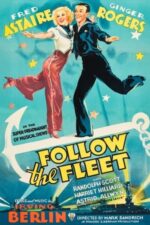Beyond the Spotlight: Exploring the Allure (and Agony) of Show Business
Isn't there something inherently fascinating about show business? Not just the glitz and glamour – though that’s certainly part of it! – but the whole idea of chasing a dream under the relentless gaze of an audience, be they ticket-buyers or studio executives. It's a world built on hope, ambition, and often, a hefty dose of heartbreak. And cinema has been dissecting this world for nearly as long as there’s been a Hollywood.
Think about it: early musicals like The Broadway Melody (1929) weren’t just entertainment; they were windows into the lives of performers striving for that elusive break. The film, with its charmingly naive depiction of vaudeville and burgeoning Broadway, captures that initial rush – the excitement of a stage, the camaraderie of fellow artists, the possibility of something more. It's pure optimism, really, before the realities set in.
And those realities are often brutal. Babes in Arms, another delightful musical from the 30s, touches on the competitive nature of the business – that constant struggle for attention and recognition. You see it even now; think about reality TV shows or the sheer volume of content vying for our eyeballs online. The core dynamic hasn’t changed much: everyone wants their moment in the sun.
But show business isn't always a song-and-dance routine. Lady Killer (1934) offers a darker, more cynical perspective – a man trying to escape his past and reinvent himself within Hollywood’s orbit, only to be pulled back into the shadows. It highlights how easily ambition can be corrupted, and how difficult it is to truly leave who you once were behind.
Then there's What Price Hollywood? (1932), which I always find particularly poignant. It’s a surprisingly honest look at the transactional nature of fame – the way talent can be molded, personalities manufactured, and relationships exploited in pursuit of success. It reminds us that even the brightest stars often have complicated stories behind them. My grandmother used to tell me about seeing this film as a young woman; she was captivated by Mary Evans’ journey but also deeply saddened by Max Carey's downfall. It really resonated with her, I think, because it showed how easily dreams could be crushed.
Even lighter fare like Follow the Fleet (1940) acknowledges the inherent instability of a life in entertainment – Sherry and Bake’s constant job losses are played for laughs, but they hint at the precariousness that underlies so many careers. And Show People, with Peggy Pepper's journey from small-town Georgia to Hollywood, is a classic cautionary tale about chasing fame and losing yourself along the way.
Ultimately, films exploring show business offer more than just escapism; they hold up a mirror to our own aspirations and anxieties. They remind us that behind every dazzling performance lies a story of sacrifice, resilience, and often, a whole lot of hard work – and sometimes, heartbreak. So next time you’re looking for something to watch, consider diving into one of these classics. You might just find yourself seeing the world of entertainment in a whole new light.







































